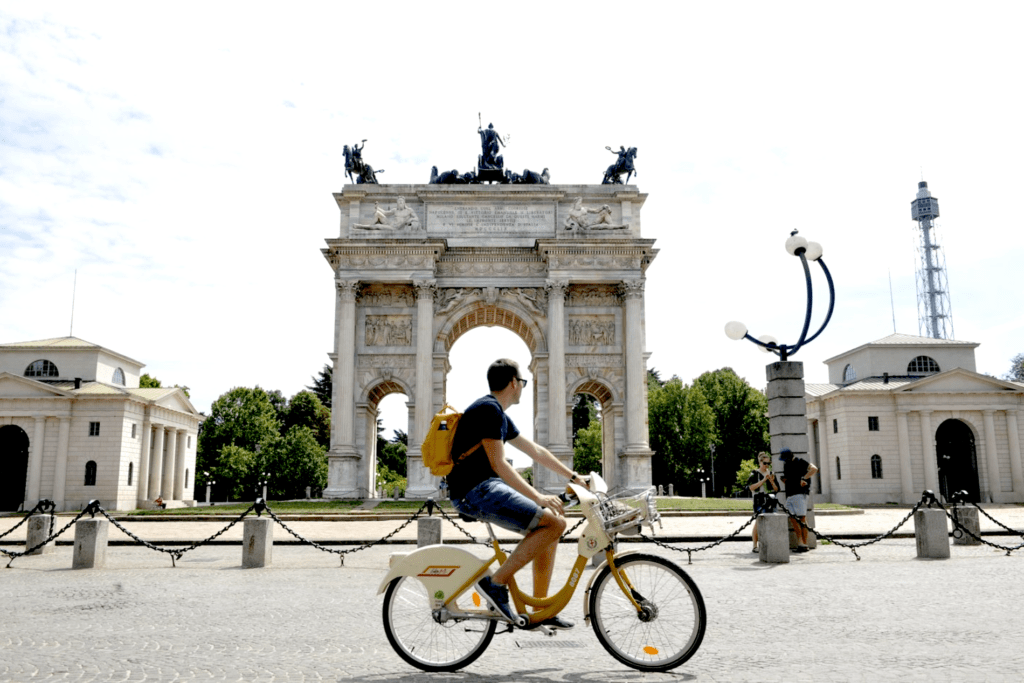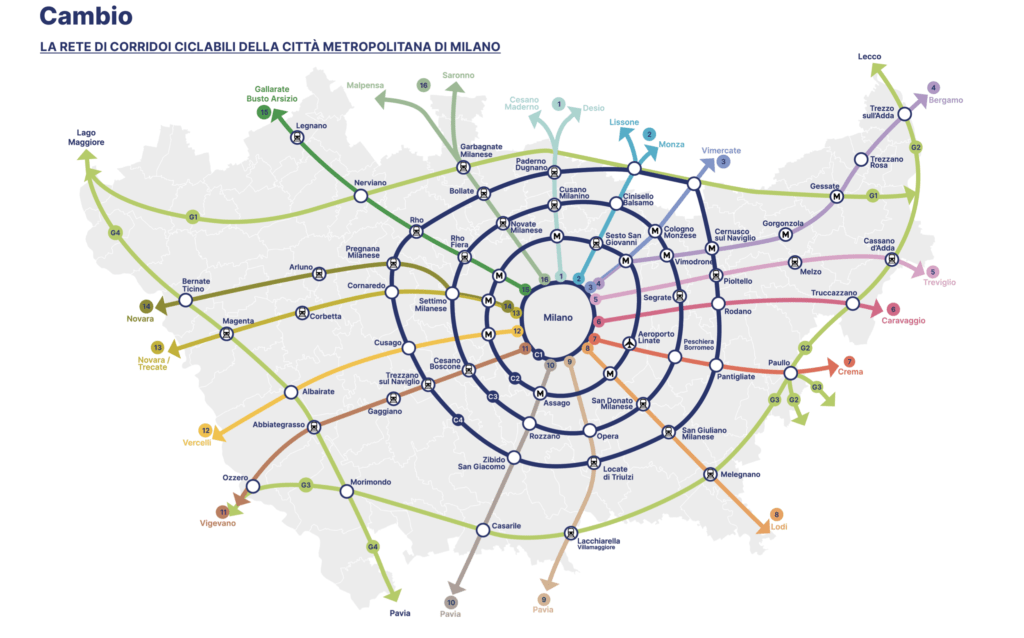• Flip Book • eNews • eAdventures • eCities • eCargoIntl • eBikeTypes • eRoad • eMTB • eUrban • eCargo • eBikeTests • eAccessories •
Cycling Cities on the Move – Milan, Italy
April 13, 2022 - In early January, the Metropolitan City of Milan, with a population of 3.239 million, unveiled its stunning Cambio Bicycle Mobility Plan, valued at €225 million, to fund 750km of bicycle paths to achieve a 20% modal shift toward cycling.

The strategic and multi-faceted project will see separated bike lanes integrated across 24 different lines that include four circular super-cycle paths, 16 radial pathways of a capillary network that connect the super-cycle paths across the territory, along with four long-distance greenways. The new plan more than doubles the existing 298km network.
In April 2020 as the pandemic hit, Milan’s cycling-friendly mayor, Giuseppe Sala, began several initiatives, first banning cars from 35km of inner-city streets. Then he introduced
an ‘Open Streets’ plan to rapidly increase infrastructure for cyclists and pedestrians, creating about 35km of new bike lanes while lowering the speed limit to 30kph in many traffic zones.
Sala also reclaimed 22,000 sq metres of vehicle lanes for 38 neighbourhood plazas. Support for the new measures was validated as he won re-election in Oct. 2021.

The 2022 Cambio Bicycle Mobility Plan coincides with Milan’s strategic Sustainable Urban Mobility Plan (SUMP) that aims to integrate all forms of mobility, rail, and road transport to respond to the concrete needs of citizens and businesses.
Under the new Cambio initiative, each bicycle path will be less than 1km from 80% of public destinations such as schools, commercial centres, health centres, local public transport stops, hospitals, etc.
Equipped with optical fibre cables for smart solutions, the innovative super-cycle paths will feature state-of-the-art infrastructure and include low-impact motion-sensor lighting,
along with dedicated bicycle parking stations.
Launched in 2008, Milan’s bike-sharing service, BikeMi,
comprises 325 stations with 4,650 bicycles, including 1,000 electric bicycles and bikes for children. The plan is to expand the program throughout the city’s 133 municipalities and create a single-ticket concept that encompasses all means of public mobility and transport.
An incentive program for mobility vehicles including e-bikes was established in 2020, but more funding is needed to re-engage the program.
Milan is showing leadership like Paris in taking bold steps to make cycling a safe, sensible and commonplace means of transportation, all while improving air quality and social well- being.








